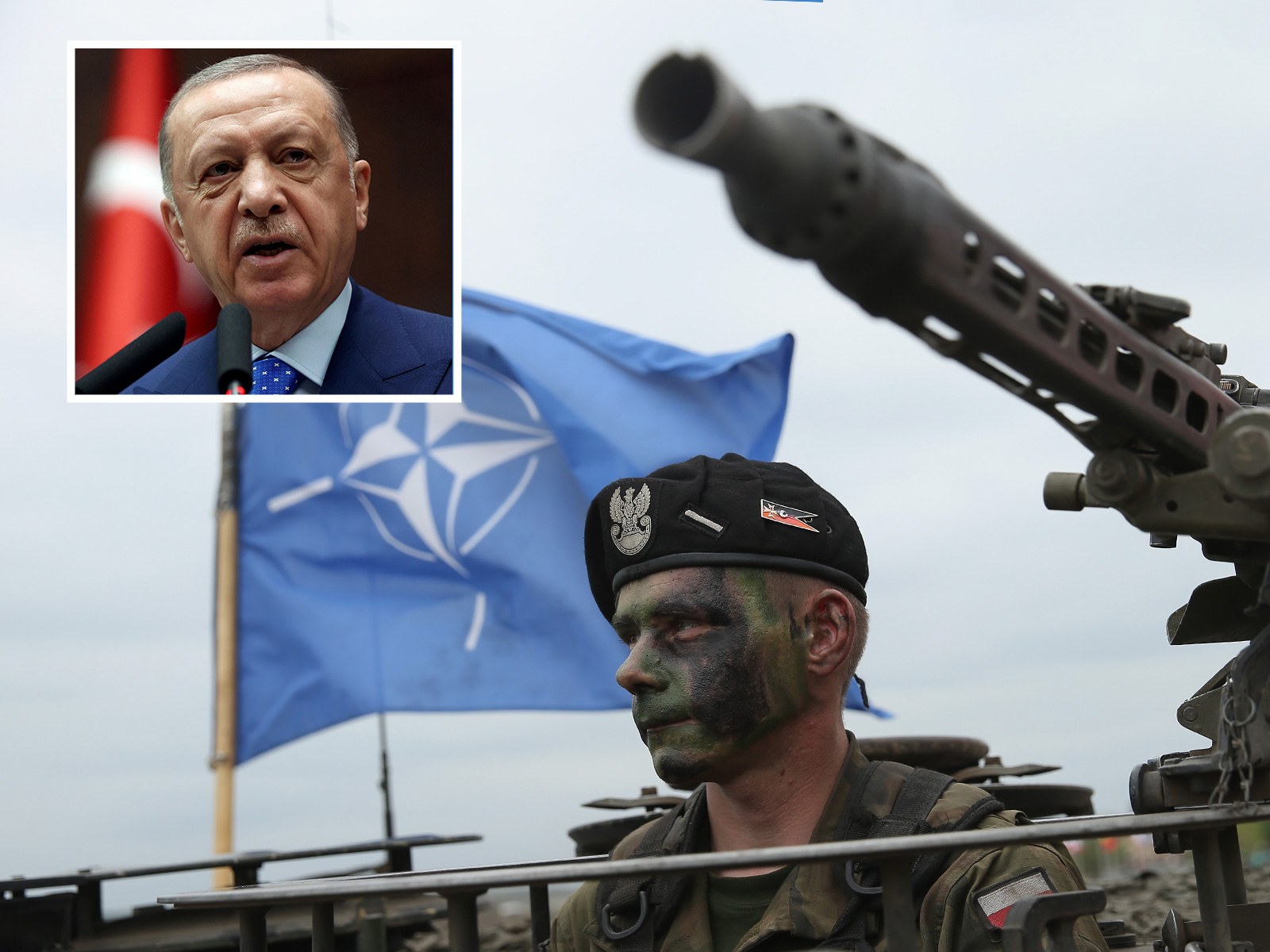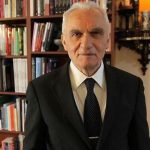The efforts by Turkey to block Sweden and Finland from becoming a member of the North Atlantic Treaty Organization have led to confusion and frustration within the alliance. President Recep Tayyip Erdogan voiced Turkey’s opposition to NATO expansion, and his ruling Justice and Development Party (AKP) followed with similar remarks. While repeating publicly some of his conditions for admitting the two countries to the alliance, Ankara also seeks to use the issue of NATO expansion to gain concessions from the West, particularly from the United States.
Russia’s invasion of Ukraine has profoundly unsettled Europe’s security architecture and undermined the political status quo that came to define the continental order since the end of the Cold War. The invasion also sent a chilling warning across the Baltics, where Finland and Sweden, long known for their unfaltering commitment to a policy of neutrality over the past two centuries, had gone through a sea change. All this change of heart took place within a couple of months. The climactic moment came when Sweden and Finland, abandoning their nonalignment policy, officially applied to NATO this past week in a clamor for full membership with the coveted protection of Article 5 of the alliance agreement.
The Swedish and Finnish endeavor has unwittingly opened cracks within the alliance as Turkey, which is an indispensable and key ally within NATO, openly resisted and blocked the two countries’ membership applications. So far, Ankara has come up with major preconditions for ending its opposition to admitting Sweden and Finland to the alliance. First, Turkey wants Sweden to change its policy toward not only the Syrian Democratic Forces (SDF) and the Democratic Union Party (PYD) but also the PYD’s military wing, the People’s Protection Units (YPG)—all of which Ankara considers to be affiliated with the Kurdistan Workers’ Party (PKK). Second, Turkey is calling for the extradition of political dissidents, including journalists and activists who have protected status in Sweden. Last, but not least, Ankara is demanding an end to the arms embargo that Sweden and Finland imposed against Turkey after its military endeavor in northern Syria in late 2016.
Why did Ankara block Sweden and Finland from becoming members of NATO? Are there other motivations behind Ankara’s objections to both countries’ bid for NATO membership? Are Turkey’s publicly stated conditions for lifting its opposition reasonable and attainable? Where do the United States and Russia stand on Turkey’s demands? How will the Biden administration react to Turkey’s demands?
Turkey’s Many Calculations
Turkish Minister of Foreign Affairs Mevlut Cavusoglu was struggling when he scrambled to offer a compelling case about Turkey’s opposition to the proposed expansion of NATO. Evidently, Ankara expects to gain more than just the conditions it has stated publicly. President Recep Tayyip Erdogan intends to capitalize on this opportunity to put pressure on the Biden administration to smoothen the process for Turkey’s plan to purchase 40 F-16s from the United States. Ankara also wants to be allowed to rejoin the F-35 program after being denied further participation in 2019. The United States expelled Turkey from the program after the Erdogan government purchased Russia’s S-400 missile defense system, which the United States said was in violation of the Countering America’s Adversaries Through Sanctions Act (CAATSA).
Although not directly linked to the NATO-expansion debate, Cavusoglu referred to a federal case in the United States against the Turkish state-owned Halkbank, which had been involved in a scheme to bust U.S.-led international sanctions against Iran over its nuclear program in the early 2010s. Apparently, Ankara expects the Biden administration to end the judicial process against Halkbank, something that is inconceivable given the established principle of separation of powers in the United States. Like his predecessors, including Barack Obama and Donald Trump, Biden also has to deal with this enigma.
Turkey’s multiple demands and recent actions within NATO cannot be fully grasped without understanding the transformation of civil and military bureaucracy in Turkey over the past few years. The unfolding diplomatic resistance in Turkey is not just related to the Erdogan government’s intransigence. Rather, the enthusiasm for Turkey’s ongoing resistance to NATO expansion springs from a political consensus shared by pro-Islamist intellectuals and ultranationalist retired generals.
The lingering war in Ukraine also looms large over Turkey’s calculations regarding the debate about NATO expansion. Equally important is Ankara’s current balancing act vis-à-vis the war, which cannot be analyzed without considering the aforementioned political transformation in Turkey and the personal rapport between the Turkish and Russian strongmen, Erdogan and President Vladimir Putin. By indefinitely keeping Sweden and Finland at the gates of NATO, Ankara seeks to mitigate Moscow’s bruised feelings that have been accentuated by Russian military losses caused by the Bayraktar TB2 drones Turkey supplied to Ukraine in its fight against the Russians. Turkey’s dithering, in this respect, is music to Russian ears. It also gives Erdogan fodder to perpetuate his balancing policy by subtly supporting Ukraine but also wreaking diplomatic havoc within NATO and courting Russia all at the same time.
In recent months, Turkey-U.S. relations have recovered considerably. With the Russian invasion of Ukraine, Turkey’s controversial position in the West has taken on a much more positive posture. It is a change that can be attributed to Turkey’s geopolitical status during the war in Ukraine; however, the positive perception is likely to be short-lived now that Turkey and its Western allies are at loggerheads over bids by Finland and Sweden to join NATO. Turkey’s obstinacy regarding NATO expansion also is, conceivably, driven by the electoral calculations of the Erdogan administration. Against this backdrop, the conflict over NATO expansion provides an “us and them” political drama just as Turkey enters an election wilderness.
Potential Implications for Turkey
For Ankara, wielding the veto option is a way to strengthen Turkey’s bargaining position against new applicants and the United States, the leader and backbone of the NATO alliance. However, overplaying its hand could undercut Turkey’s position in the long run. The pressing geopolitical demands that arose after the Russian invasion of Ukraine make Ankara’s uncompromising stance less palatable and more frustrating for Western allies that have grown more impatient with and less tolerant of Ankara’s perceived brinkmanship. Ankara’s stance also risks undermining its bid to purchase new F-16s and its desire to patch up differences with the European Union in the face of a teetering economy at home.
Turkey’s opposition to NATO expansion also could have far-reaching implications domestically and internationally. First, Ankara’s extradition requests are difficult, if not impossible, to carry out because of Sweden’s long history of promoting human rights. Turkey’s demands belie the cornerstone of Sweden’s rules-based legal system and do not sit well with the Swedish public. In this context, such requests are likely to be rejected.
Ankara touts Finland’s arms embargo against Turkey as another main reason behind its blocking of that country’s bid for NATO membership. Indeed, it is puzzling why Ankara considers this embargo a significant showstopper when Turkish leaders are quick to boast that the country is 80 percent self-sufficient in providing for its own defense. To sum up, Turkey’s justifications for blocking the road for Sweden and Finland to join NATO are far from convincing.
Second, Ankara’s zero-sum game approach to NATO expansion could further exacerbate tense relations with ally nations, isolate Turkey in the Western bloc, and harden anti-Turkey sentiment in the U.S. Congress, where the number of supporters in both chambers dwindled after the Erdogan administration made several missteps in recent years. The unfolding drama surrounding NATO, therefore, may dissuade the Senate from approving the sale of F-16s to Turkey. Closer to home, the confrontation over NATO expansion stands to significantly undercut Ankara’s recent charm offensive in the Middle East, where it hopes to mend some fractured relationships with regional countries, including, but not limited, to Saudi Arabia, the United Arab Emirates, and Israel.
Third, Ankara lacks two critical positions of strength: value-based convincing arguments for international support, domestic backing and popularity at home. Ankara’s timing could not be worse, given that the Russian invasion of Ukraine has posed an existential threat to the countries in Eastern Europe and the Baltics. This time it is not just about who would be the secretary-general of NATO or NATO operations in a certain country. The war in Ukrainian created a political and psychological climate that compelled European countries to support Ukraine and any country that feels threatened by Russian aggression. More importantly, NATO is about to determine one of its most critical route maps. The new “strategic concept” will be adopted at the 2022 Madrid Summit scheduled for September, which “will define the security challenges facing the Alliance and outline the political and military tasks that NATO will carry out to address them.” Turkey’s disruptive tactics have created frustration among NATO members at a time when the alliance needs strong unity more than ever before.
Any actor who chooses to impede NATO unity could face a backlash from the alliance; therefore, Turkey’s stance against NATO expansion could be a risk to the security of NATO and Europe. On the domestic front, Erdogan and his party are facing one of the most challenging elections in all of Erdogan’s more than 20-year tenure as either prime minister or president. The deepening economic crisis in Turkey has been eroding Erdogan’s popularity amid waning public trust in his ability to pull off a magical solution to pressing bread-and-butter issues. Feeling vulnerable, Erdogan, diplomatically speaking, wants to weaponize Turkey’s veto power over NATO expansion for the sole purpose of scoring political points by portraying himself as a formidable leader who could take on NATO and the West. Though it might have been appealing in the past, the strategy lacks muscle and meat, given Turkey’s deepening economic and social woes.
Finally, Turkey’s balancing act over the war in Ukraine could lose traction. It is an outcome that could reinforce skeptics’ view that Turkey is swinging toward the Russian bloc. Turkey has already been under scrutiny since the AKP government declared an open-door policy for Russia’s oligarchs. Despite its commendable efforts to mediate a diplomatic solution between Russia and Ukraine by hosting successive rounds of talks in Istanbul, Ankara’s opportunity-driven approach to the war has raised eyebrows.
Policy Recommendations
Asking Sweden and Finland to write off their rules-based systems of democratic tenets for the sake of Turkish requests is not attainable. Neither Sweden nor Finland would compromise their democratic system to satisfy Ankara’s demands. If Turkey wants to find a solution to this conundrum, the manner and substance of its diplomatic negotiations should be constructive rather than disruptive in nature.
To preserve the integrity of the alliance, granting concessions without much fuss could be an easy option for the United States and NATO, but it would not easily satisfy Erdogan. Russia’s military undertaking in Ukraine threatens not only the rest of Europe and the Baltic states but also Turkey. The security challenges for Turkey are considerable. NATO would be wise to remind Turkey’s leadership about the treasured protective umbrella the alliance provides to Turkey and all NATO members.
When dealing with Turkey, the United States and other NATO members should emphasize NATO’s value system, its operational goals, and the high-profile cooperation among allies as necessary preconditions for a positive relationship. Turkey must realize that constructive dialogue—not threats or disruptive diplomacy—governs the intra-alliance relations among NATO members.
By Suleyman Ozeren*
*Dr. Suleyman Ozeren Suleyman Ozeren is an adjunct faculty at George Mason University. He formerly served as the President of the Global Policy and Strategy Institute and the Director of the International Center for Terrorism and Transnational Crime (UTSAM) in Turkey. He also served as a faculty member at different universities.
Source: Orion Policy Institute.


